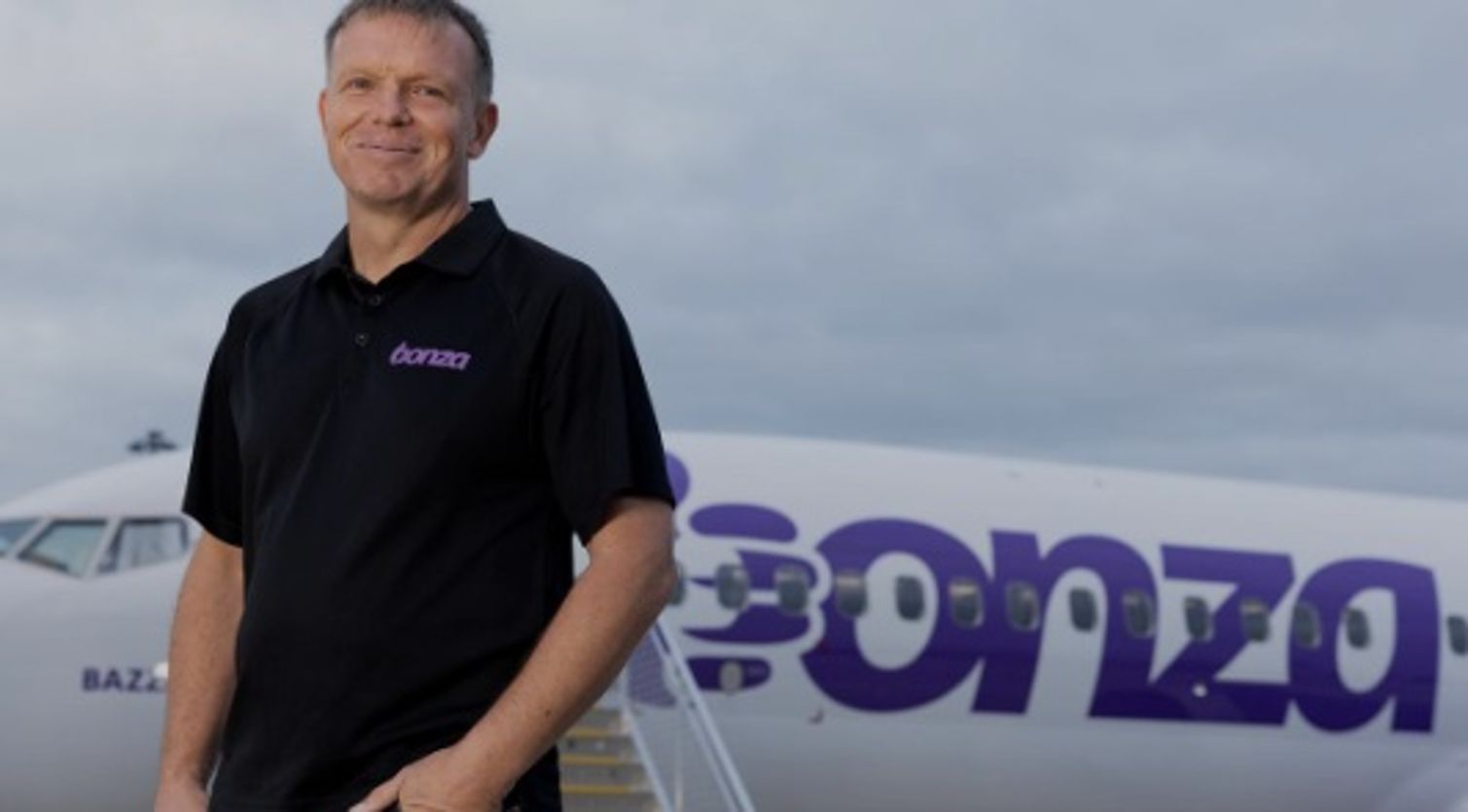The future of Bonza is in limbo as the fledgling budget airline enters voluntary administration – a well-trodden path in Australian aviation.
Tuesday’s events delivered a blow to competition within an industry largely controlled by two major players, evoking memories of past fallen carriers as services were abruptly halted and planes seized.
Bonza, in its 15-month journey from launch to sudden grounding, ferried over 750,000 passengers across Australia. Its entry into the fiercely competitive market, dominated by Qantas Group and Virgin, was marked by turbulence.
Originally aiming to fill the gap in regional and holiday destination routes underserved by existing carriers with low-cost, low-frequency flights, Bonza faced delays in regulatory approval, finally commencing operations in January 2023.
Its executives cultivated a brand that saw it dubbed the “bogan” airline, making headlines by offering budgie smugglers in its inflight shop and for shunning traditional travel outlets to only sell tickets through its smartphone app.
The airline faced challenges due to aircraft shortages, leading to the cancellation of multiple routes over the past year. Consequently, its market share stood at a mere 2%, as per the latest report from the competition watchdog on domestic aviation.
Despite starting from the Sunshine Coast and expanding to major airports like Melbourne’s Tullamarine and the Gold Coast, Bonza struggled to secure access to Sydney Airport.
Australia’s aviation sector has historically been difficult to penetrate, with government regulations limiting competition between state capitals to just two airlines until 1990, primarily Qantas and Ansett.
Tony Webber, CEO of Airline Intelligence & Research and former chief economist at Qantas, noted that while Bonza’s unique business model avoids direct competition with major carriers, breaking into the Australian market remains a formidable challenge.
Additionally, the absence of access to Sydney Airport significantly limited Bonza’s reach within its potential market. The issue of securing slots at Sydney Airport remains a significant hurdle, with the government signaling intentions in February to address the existing slot allocation system amidst allegations of hoarding slots to stifle competition.
“The incumbent carriers can be very competitive, particularly Qantas, which is hyper competitive,” Webber said. “They realise that to preserve profitability they have to get on the front foot with the competitor.”
Webber noted that Qantas had roughly 65% market share; together with Virgin, the two operate about 90% of the market.
“You’ve got to have a strong point of difference to the incumbents if you’re going to succeed,” he said. “Just because an overseas market with a similar population can successfully run four or five carriers, it doesn’t mean [that] will succeed here.”
Probably the most disappointing part of the news is that it sounds as though the problems lie with the airline’s owner, a Private Equity firm called ‘777 Partners.’
Disputes between the aircraft lessors and 777 Partners, who also own Canadian LCC Flair, have resulted in the lessors calling-in the leases.
The underlying problems at 777 Partners stem from a re-insurance operation they own and operate, and have been unable to supply financial statements for across the past 2 years
Bizarrely, 777 Partners have cash, evidenced by them loaning $383 million to English Premier League club Everton.
The issues of a parent company infecting a subsidiary – I should have started this post with a trigger warning. I can almost hear the clicking and clanking of ex-Ansett staff furiously typing at their keyboards to point out what Air New Zealand did to them!
Bonza now in voluntary administration
Bonza has temporarily suspended services due to be operated between Tues 30 April, Wed 1 and Thur 2 May, as discussions are currently underway regarding the ongoing viability of the business.
We apologise to our customers who are impacted by this and we’re working as quickly as possible to determine a way forward that ensures there is ongoing competition in the Australian domestic aviation market.
Hopefully Bonza will be able to resume operations soon. It is clear they were getting some success, with their unusual route network popular with people who had undergone a tree-change to regional locations over the past few years.
Even if Bonza manages to resume flights starting Friday, it faces an uphill battle to secure its future as an airline, given its recent track record of unreliability.
Following the setback, many travelers are likely to steer clear of booking with Bonza, depriving the company of essential cash flow needed for sustainable operations. While not entirely impossible, Bonza’s prospects for a recovery appear bleak at this point.
The news also spells uncertainty for the hundreds of dedicated Bonza employees, affectionately dubbed “legends” by the company.
For those residing in Maroochydore or Noosa, where Sunshine Coast Airport is the sole base for the airline, finding new employment poses a particular challenge. They may now have to commute to Brisbane Airport or explore opportunities in alternative fields.
Bonza’s Unique Business Model
Many analysts have raised doubts about the viability of the airline’s underlying business strategy, suggesting it faced inevitable challenges from the outset. They argue that the demand wasn’t robust enough to consistently fill the seats of their costly 186-seat jets on regional routes like Melbourne-Port Macquarie.
Skeptics point to the fact that 30 out of the 36 domestic routes served by Bonza were previously untouched by other airlines. However, Bonza wasn’t aiming to compete directly with established carriers. Instead, its goal was to stimulate fresh demand from travelers who might otherwise have opted for alternate modes of transportation or chosen not to travel altogether.
While attracting a segment of business travelers who might have otherwise booked with other airlines was a welcomed bonus, the core of Bonza’s strategy didn’t hinge on this.
This approach of cultivating new demand has been proven successful in various markets, as evidenced by the achievements of Bonza’s CEO, Tim Jordan, who previously launched the highly prosperous budget carrier, FlyArystan, in Kazakhstan.
Bonza did manage to effectively boost demand on several routes it operated, such as Albury-Gold Coast, Mildura-Sunshine Coast, and Maroochydore-Mackay. However, there were routes, like Coffs Harbour-Maroochydore, where the strategy fell short. Yet, while it likely played a role, attributing Bonza’s downfall solely to its business model would be oversimplifying the situation.
As Bonza navigates its future within the administration process, it seems poised to become yet another addition to the roster of airlines that have sought to challenge Qantas’ dominance and the longstanding duopoly in Australian aviation history.







